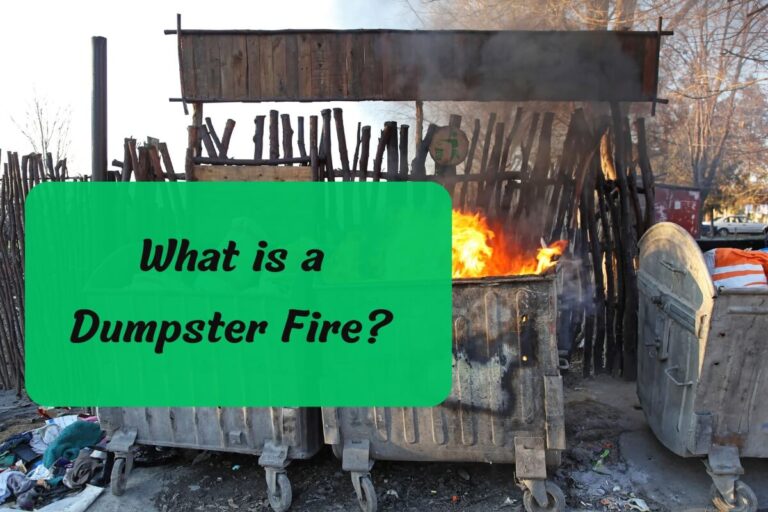
Metal detecting in Pennsylvania offers a thrilling adventure for history buffs and treasure hunters alike. The Keystone State boasts numerous locations ideal for metal detecting, including state parks, ghost towns, beaches, and historical sites. This guide will explore the best places to swing your detector, essential equipment, laws to follow, and tips for a successful hunt.
Understanding Pennsylvania’s Metal Detecting Laws
Before you start your treasure hunting journey, it’s crucial to know the rules of the game. Pennsylvania’s metal detecting laws are relatively flexible, but there are still important regulations to follow.
Federal Regulations
The Archeological Resources Protection Act (ARPA) governs metal detecting across the United States. This law aims to preserve historical and cultural artifacts. It’s illegal to remove man-made objects over 100 years old from public land.
State-Specific Rules
Pennsylvania allows metal detecting in most state parks without a permit. However, you must stick to “reasonable metal detecting” practices. This generally means avoiding fenced areas and busy park sections.
Local Ordinances
Always check local rules before detecting. Some cities or counties may have extra restrictions. When in doubt, ask local authorities or park managers for guidance.
Essential Equipment for Metal Detecting in Pennsylvania
Having the right gear can make or break your metal detecting experience. Here’s what you’ll need:
Recommended Metal Detectors
- Entry-level: Garrett Ace 300
- Mid-range: Minelab Equinox 600
- High-end: XP Deus II
Additional Tools and Accessories
- Pinpointer
- Digging tool (small shovel or trowel)
- Finds pouch
- Headphones
Safety Gear
- Gloves
- Sturdy boots
- Sun protection (hat, sunscreen)
- Insect repellent
Best State Parks for Metal Detecting in Pennsylvania
Pennsylvania’s state parks offer diverse landscapes and rich history, making them prime spots for metal detecting.
Ricketts Glen State Park
This park is a treasure trove of Native American history. Detectorists have found pipes, tools, and even European settlers’ artifacts here.
Nockamixon State Park
With its 5,283 acres and popular tourist spots, Nockamixon is great for finding modern lost items and occasional historical relics.
Parker Dam State Park
Located in Elk County, this park might be your ticket to uncovering Civil War-era treasures.
Other Notable State Parks
- Presque Isle State Park (great for beach hunting)
- Promised Land State Park
- Codorus State Park
Remember, always follow park rules and fill in your holes after digging.
Metal Detecting in Pennsylvania’s Ghost Towns
Ghost towns offer a glimpse into Pennsylvania’s past and can be goldmines for metal detectorists.
Centralia: The Famous Abandoned Mining Town
Once a thriving coal mining community, Centralia was mostly abandoned due to an underground fire that’s been burning since 1962. While you need permission to detect here, it’s a unique spot with potential for interesting finds.
Other Ghost Towns Worth Exploring
- Pithole City
- Petroleum Centre
- Frick’s Lock
Safety Considerations
- Watch for unstable structures
- Be aware of potential sinkholes
- Bring a buddy for safety
Beaches and Lakeshores for Metal Detecting
Pennsylvania’s beaches and lakeshores can be productive spots for metal detecting, especially after busy summer seasons.
Presque Isle State Park
This sandy peninsula on Lake Erie is a popular spot for beachgoers, making it prime real estate for lost jewelry and coins.
Lake Erie Shoreline
The entire Pennsylvania shoreline of Lake Erie offers opportunities for metal detecting. Check local regulations for specific areas.
Seasonal Restrictions and Permissions
Metal detecting on beaches and lake swimming areas is typically allowed from the Tuesday after Labor Day until the Saturday before Memorial Day. During summer, it’s at the park manager’s discretion.
Historical Sites and Battlefields
Pennsylvania’s rich history makes it a prime location for finding Civil War relics and other historical artifacts.
Gettysburg National Military Park Area
While detecting isn’t allowed within the park itself, surrounding areas can yield interesting finds. Always respect private property and obtain permissions.
Valley Forge National Historical Park Vicinity
Similar to Gettysburg, the areas around Valley Forge can be promising for history buffs with metal detectors.
Ethical Considerations and Limitations
- Never remove artifacts from protected historical sites
- Report significant historical finds to proper authorities
- Prioritize preservation over personal gain
Urban Metal Detecting in Pennsylvania
Urban areas can be surprisingly fruitful for metal detecting, especially in older neighborhoods and parks.
Philadelphia’s Parks and Recreational Areas
The City of Brotherly Love has numerous parks where you might uncover centuries of lost items. Fairmount Park, one of the largest urban park systems in the U.S., offers ample detecting opportunities.
Pittsburgh’s Public Spaces
Steel City’s parks and public areas can yield interesting finds from its industrial past.
Tips for Urban Metal Detecting
- Be mindful of pedestrians and park users
- Detect during off-peak hours
- Always get permission when required
River and Creek Metal Detecting
Pennsylvania’s waterways have been used for centuries, making them potential hotspots for lost treasures.
Delaware River
This historic river has seen Native American settlements, colonial trade, and modern recreation. Check access points and shallow areas for potential finds.
Susquehanna River
As one of the oldest rivers in the world, the Susquehanna might hold secrets from various eras of Pennsylvania history.
Safety Precautions for Water-Based Detecting
- Wear appropriate footwear for slippery conditions
- Be aware of currents and water levels
- Never detect alone in water
Private Property Metal Detecting
Some of the best finds can come from private land, but it’s crucial to go about it the right way.
Obtaining Permission from Landowners
Always get written permission before detecting on private property. Be clear about your intentions and offer to share any valuable finds.
Old Homesteads and Farms
These can be goldmines for historical artifacts. Research local history to identify promising locations.
Building Positive Relationships with Property Owners
- Respect the land and fill in all holes
- Share your interesting (non-valuable) finds
- Offer to help with lost item searches
Treasure Legends and Notable Finds in Pennsylvania
Pennsylvania is ripe with treasure legends that fuel the imagination of detectorists.
The Lost Civil War Gold Legend
A persistent legend tells of 26 gold bars buried in northwest Pennsylvania by Union soldiers. While the FBI’s 2018 search turned up empty, the story continues to intrigue treasure hunters.
Success Stories from Pennsylvania Detectorists
- Civil War buttons and badges found in state parks
- Colonial-era coins discovered on private farmland
- Native American artifacts unearthed near historical sites
Potential Areas for Significant Discoveries
- Old mining towns in the Pocono Mountains
- Former stagecoach routes
- Abandoned railroad lines
Metal Detecting Clubs and Communities in Pennsylvania
Joining a metal detecting club can enhance your hobby and provide valuable local knowledge.
Benefits of Joining a Club
- Access to group hunts
- Sharing of tips and techniques
- Learning about local history and promising sites
Notable Pennsylvania Metal Detecting Clubs
- Beaver County Detecting Club
- Black Diamond Treasure Hunting Club
- Lancaster Research and Recovery Club
Online Resources and Forums
- TreasureNet Pennsylvania Forum
- Facebook groups for Pennsylvania metal detectorists
- Local historical society websites
Best Practices and Etiquette for Metal Detecting in Pennsylvania
Responsible metal detecting ensures the hobby’s future and preserves historical sites.
The “Code of Ethics” for Responsible Detecting
- Always fill in your holes
- Remove all trash you uncover
- Respect private property and “No Trespassing” signs
Proper Dig and Fill Techniques
- Use a plug cutter for minimal surface damage
- Replace any disturbed grass or plants
- Leave the area as you found it or better
Reporting Significant Historical Finds
Contact the Pennsylvania Historical and Museum Commission if you uncover potentially significant artifacts.
Seasonal Considerations for Metal Detecting in Pennsylvania
Pennsylvania’s diverse seasons offer unique detecting opportunities and challenges.
Best Times of Year to Detect
- Spring: After the thaw, before vegetation growth
- Fall: After leaves drop, exposing more ground
- Winter: On beaches, when tourist activity is low
Weather-Related Challenges and How to Overcome Them
- Summer heat: Detect early morning or evening
- Winter cold: Invest in waterproof, insulated gear
- Rainy days: Use a weatherproof detector and rain gear
Seasonal Events that May Affect Detecting Opportunities
- County fairs and festivals
- Reenactments at historical sites
- Beach season (Memorial Day to Labor Day)
Conclusion
Pennsylvania offers a wealth of opportunities for metal detecting enthusiasts. From its historic battlefields to pristine beaches, ghost towns to bustling city parks, the Keystone State has something for every detectorist. Remember to always follow local laws, respect private property, and practice ethical detecting. With patience, research, and a bit of luck, you might uncover a piece of Pennsylvania’s rich history or even a modern-day treasure. Happy hunting!






